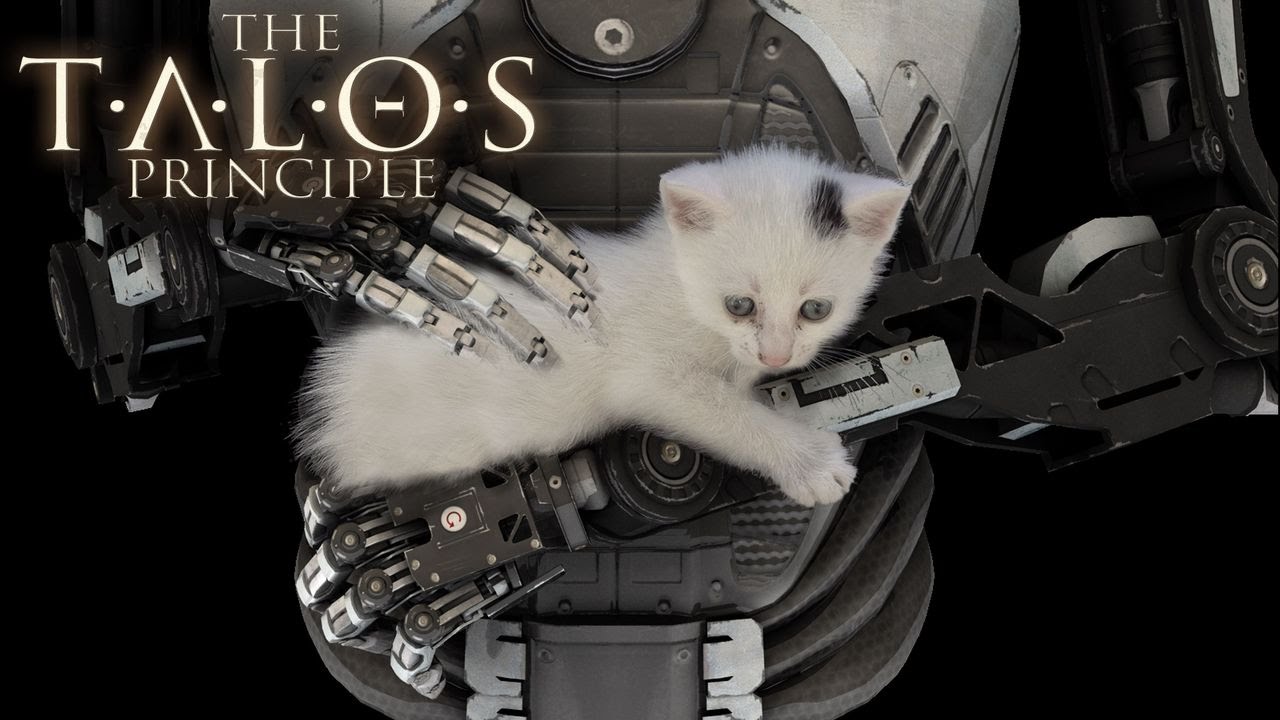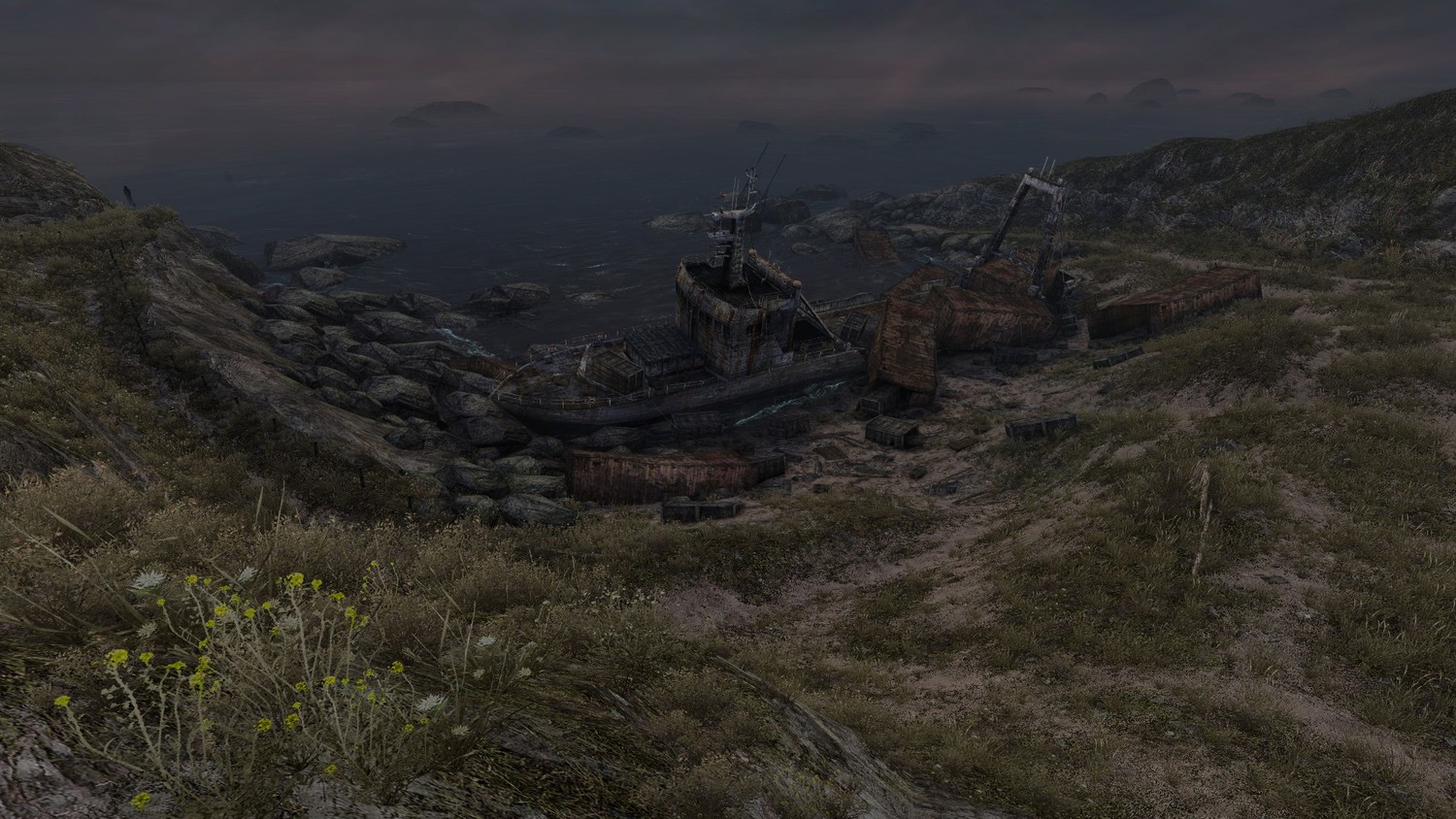
Review: The Talos Principle
Posted by Curtis H on October 22nd, 2015 | 0 Comments | Tags: The Talos Principle
This past summer Pneuma: Breath of Life pushed me to think about what it means to exist. Around that same time The Fall examined how AI operates under certain laws and the implications of needing to abide by those laws. Recently SOMA explored those themes further with even more philosophical ramblings regarding the way human/AI/simulations interact. The Talos Principle continues this theme with a narrative that kind of ties everything together into a neat bow. Here we have the booming voice of Elohim (God) detailing all of creation and that which has been given to you, a computer terminal program that’s dead-set on questioning your way of thinking, and recorded diaries that explore all different facets of humanity. This narrative is wrapped around a challenging puzzle game that, like Portal, will often times leave you feeling like a genius after each success.
The puzzles in The Talos Principle are split into three separate buildings that are positioned surrounding a large tower that reaches far past the clouds. Elohim has gifted you with all of creation as long as you don’t climb this tower. Whatever choice you make on that front will have to wait until after finishing the puzzles in each of the other buildings. Each of these buildings are split into seven sections that each teleport you to other locations that house anywhere from 3 to 5 puzzles. The objective of each puzzle is simple enough. Open up the path and collect the sigil (tetromino). Sigils are usually locked away behind some sort of gate that you’ll need to open using a number of different devices. At first it’s as simple as using a jammer to open gates or using connectors to redirect beams of light. As things progress the game introduces the ability to record a copy of yourself among a number of other useful tools. All of these combined result in some truly challenging and intelligently designed puzzles.

The easiest comparison to make and one you’ll see often in relation to The Talos Principle is that it elicits many of the same vibes as Portal. Often times I found myself walking into a puzzle room with no idea how I’d even begin to solve it and leave feeling like a genius. I loved how each puzzle seemed to unravel as I discovered different ways to look at the problem. The way perspective would change my approach or how air vents allowed for more vertical solutions. In many cases I solved puzzles in ways that I’m not sure the developer intended. I imagine there are multiple solutions to some puzzles or perhaps there are things placed intentionally to throw the player off. Either way every puzzle, even the easier ones, were really fun to solve and never took more than 5-10 mins. That alone helps with just how brisk a pace the game moves in.
The sigils collected in each puzzle are also put to use on occasion through puzzles that will unlock new tools or areas. These sigil puzzles require you to fit specific pieces together into a rectangle shape. These are a lot of fun and can be quite challenging later on.
Aside from puzzles there are also stars to collect that can be incredibly challenging to find. Thus far I’ve only found a handful on my own and there’s only a few others that I specifically know the location of. There’s also QR codes around the many different environments that have been left by other users that have run the simulation. Walking up to these codes will automatically scan them and display messages. These messages don’t necessarily further the overall narrative, but they do add more context to the story and will sometimes just make you laugh. The diaries I mentioned before can also be collected throughout the game and are narrated by an engineer named Alexandra Drennan (voiced by Erin Fitzgerald). These diaries speak to what happened to humanity in the past and features Alexandra waxing philosophical about all sorts of really fascinating topics. It certainly helps that the VO is really good too.
In each area of the game you’ll come across computer terminals. These terminals house many different text files that fill in much of the backstory and also gives access to the MLA. The Milton Library Archive is a seemingly sentient program. By that I mean it’s actually capable of holding a conversation with you. Much of these conversations lead to questions on morality and consciousness that left me thinking really hard about my responses. Many of which the program would twist just to show how the solution is never so simple. These conversations are really well done and, much like the rest of the story, left me pondering all sorts of philosophical topics. That said my one complaint is that, for as interesting as the terminals can be, stopping to read a bunch of text slows the game down a bit too much. I often found myself putting off terminals because I’d much rather be solving puzzles. I’m not sure if there’s a better way to do it, but it’s also a pretty small complaint in a game that completely floored me.
The music in The Talos Principle is so unbelievably good. I mentioned to Collin that I found myself setting the controller down, taking in the often times tranquil music, and saying ‘wow’ out loud. This track in particular sets the mood so well with the environment it plays in.
On PS4 The Talos Principle also comes with the DLC “Road to Gehenna” which offers up more challenging puzzles and a new story. The base game itself is over ten hours and Road to Gehenna, of which I’m part way through, looks to be pretty expansive.
I’ve been hearing praise for this game since its PC release almost a year ago. Even with high expectations going in The Talos Principle still blew me away. Through excellent puzzle design and a thought provoking narrative this easily stands among some of my favorites games this year.
A copy of this game was provided by the publisher for review purposes. For more info on our review policy click here.
General Info
- Developer: Croteam
- Publisher: Devolver Digital
- Platforms: PS4 (Reviewed)
- Release Date: October 2015
Score:
What I Like:
- Excellent puzzle design
- Thought provoking narrative
- Great voice over. (Especially on the diaries)
- Sigil Puzzles
- The record a copy of yourself mechanic
What I Dislike:
- Stopping to read a lot of text, as interesting as it is, can halt the otherwise great pacing of the game




